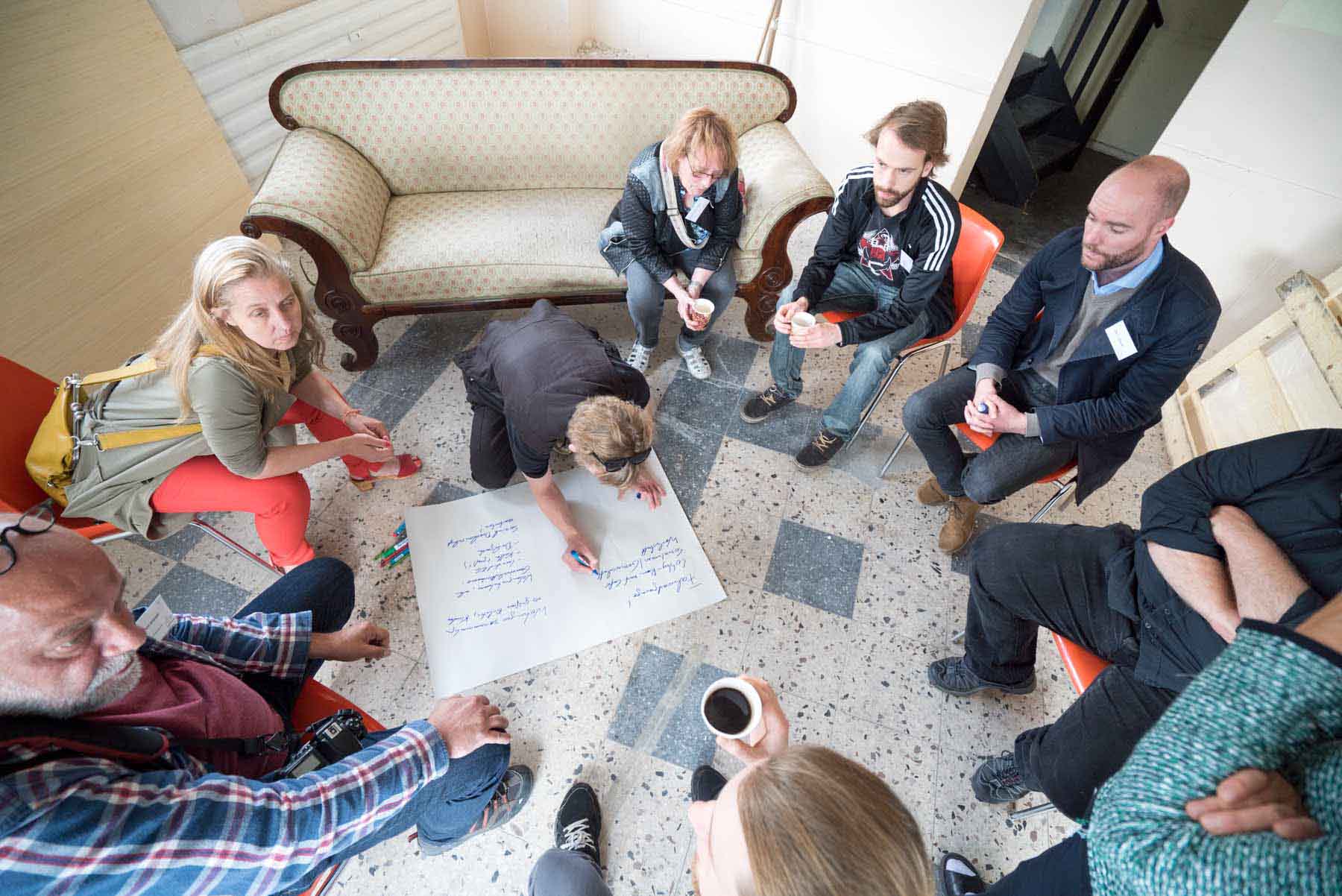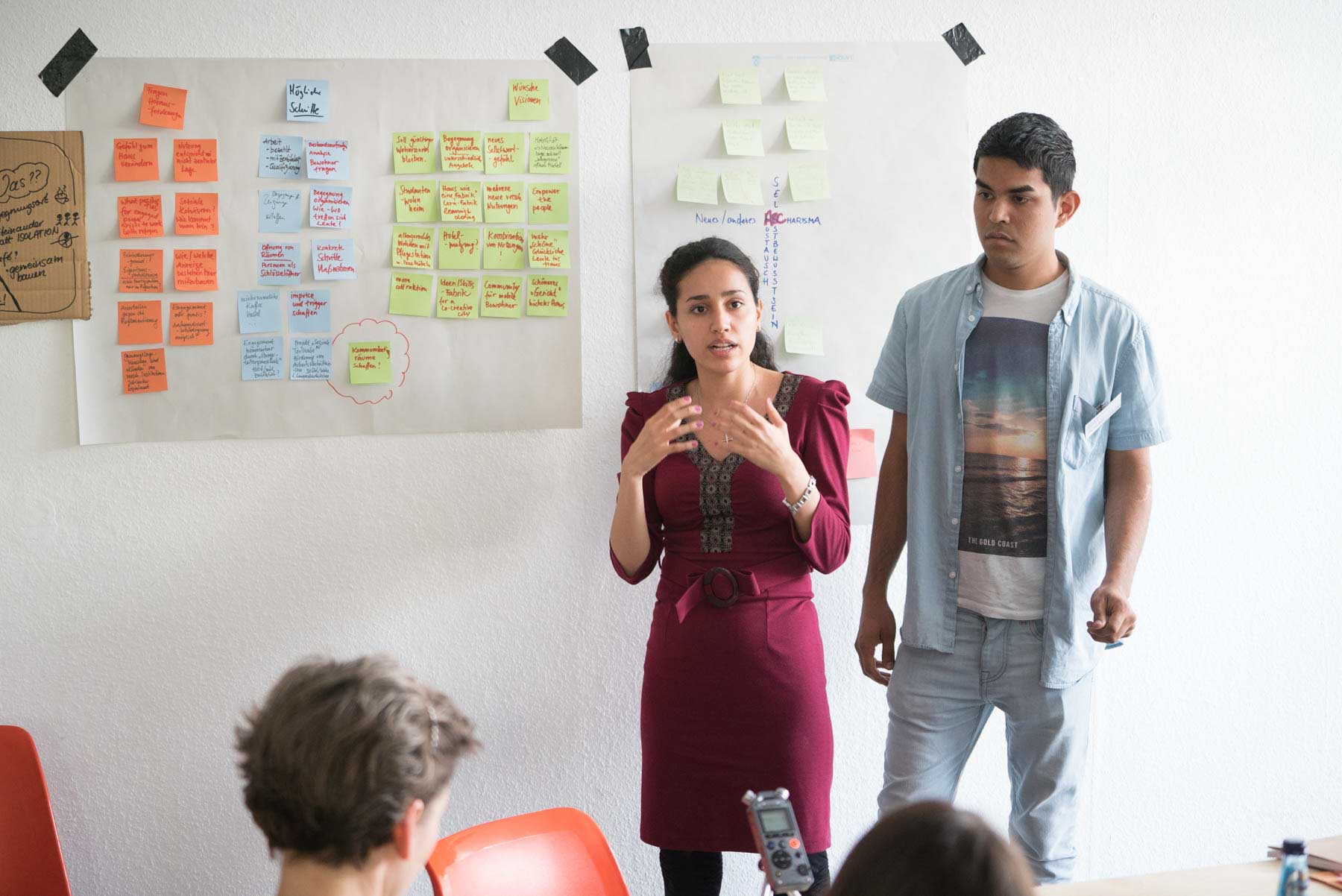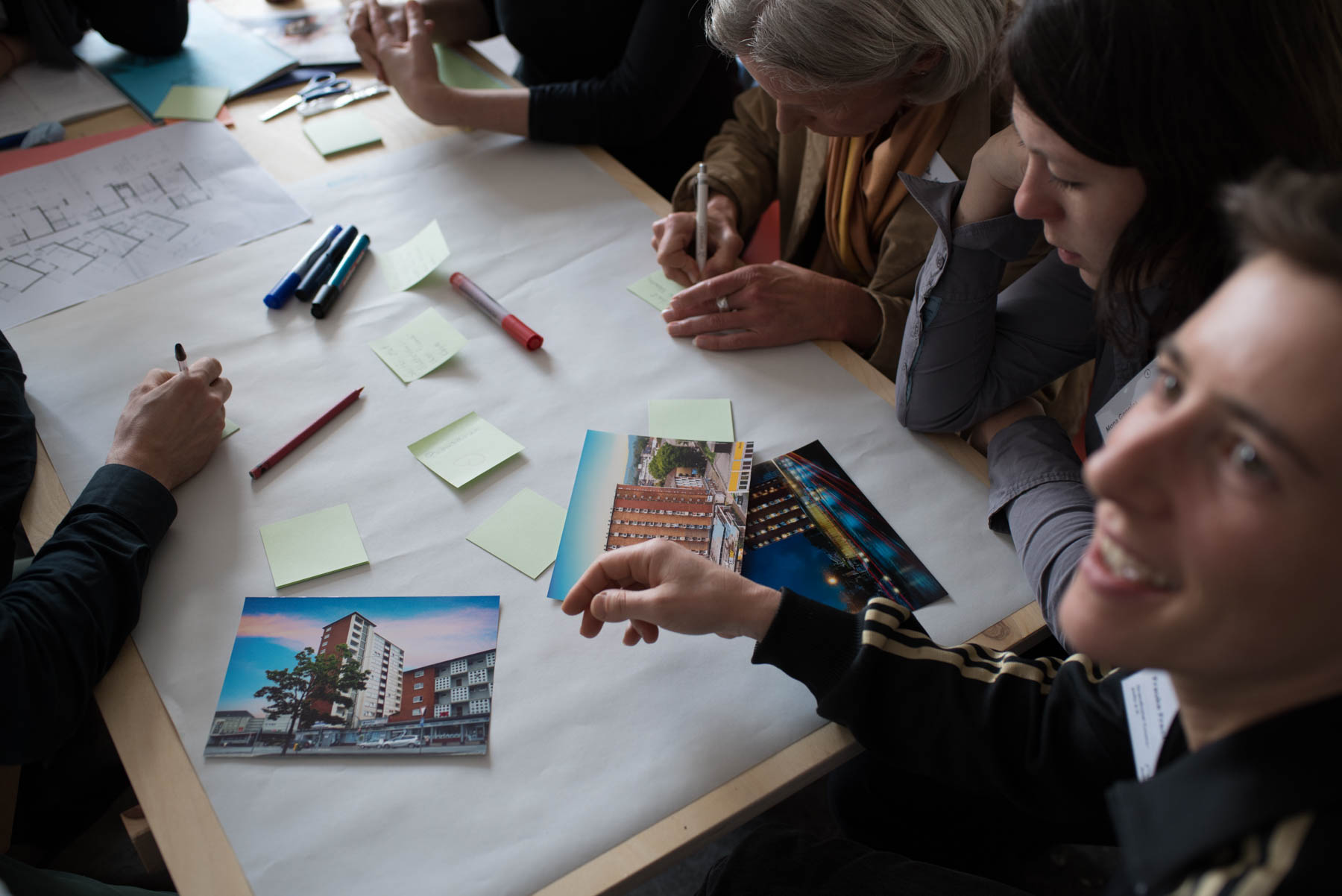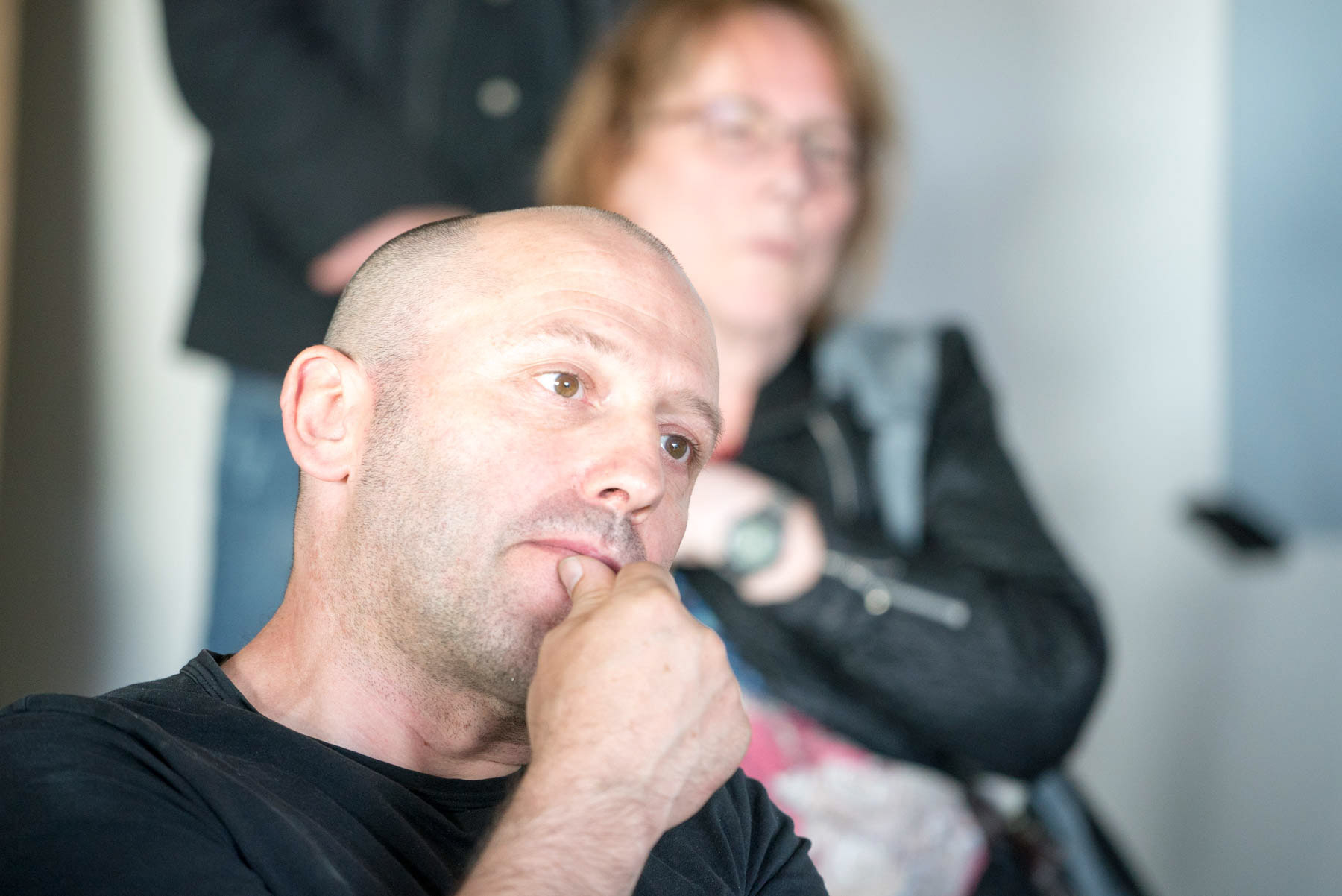WORKSHOP "HANDS ON, CO-CREATE!"
07.07.16At Kitev, we had initiated the Workshop 4 “Hands on! Wir reparieren ein Hochhaus” in order to crowdsource visions and ideas for the high-rise apartment building that we have agreed to work with in the coming years. The owner company Vonovia has invited Kitev to start a gradual upgrading process, where the current and potential future residents of the house shall be co-creators both in planning the interventions and in carrying them out together with other collaborators. The renovation process will also be an experiment of community building and social integration, hopefully making a valuable contribution to the seminar’s main topic “More (than) living space” – or even a showcase of social integration through construction.
The workshop attracted an interesting mix of people: long-time Oberhausen residents and recent migrants, planning and housing professionals, artists and students from both close and far. First the people with the most knowledge about the past and current state of the building shared their views, to familiarize others with the state-of-the-art. Besides the challenges such as small flats that favour high fluctuation of residents and one-sided socio-economic structures, a number of opportunities were identified: e.g. low rents, great location and visibility in the city, positive feeling after the first encounters with the current tenants as well as a relatively good basic condition of the building.
The workshop also took place in the targeted building, in a vacant shop premise of the ground floor. Most of the time was spent in three groups, envisioning the great future of the building and making a roadmap by naming concrete actions that are required to reach the vision in the coming five years: what can be done immediately and which bottlenecks have to be removed before being able to proceed with certain interventions. All agreed that the first priority is to start familiarizing with the current residents – e.g. to talk with the long-time anchor tenants and residents, to initiate a series of small gatherings to inform the tenants about the process, to gather knowledge about their priorities. What shall be avoided is a costly renovation process the results of which are not truly appreciated or are used only seldom.
A number of problems got at least tentative solutions already. If it was possible to lower the considerably high maintenance costs of the house (caused e.g. by the carelessness of some tenants), it could be possible to offer some benefits – a roof garden? – for the residents in return. One group envisaged how hiring certain residents as caretakers instead of outsourcing all building maintenance would keep the money “in the house” and gradually reduce the disinterest that some have in their apartment building. A related idea was to provide opportunities for work and apprenticeship inside the building by establishing a number of workshops either in the shop premises or vacant apartments. We were lucky to have representatives of the owner company (Vonovia) and the Job Center in the workshop.



